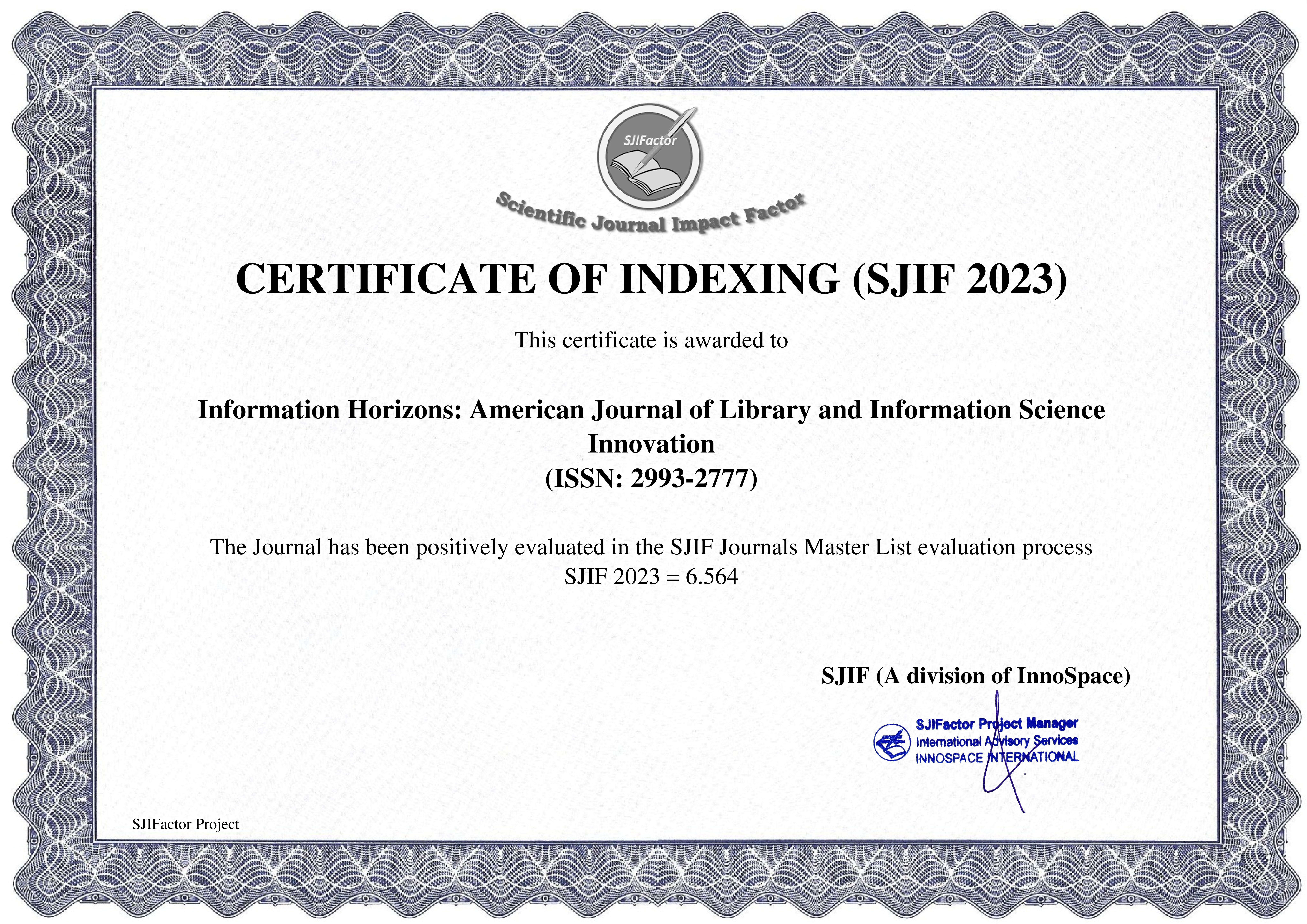Marketing of Information Resources in Nigeria
Keywords:
Marketing, Information Resources, NigeriaAbstract
The study assessed Marketing of Information Resources in Nigeria. A descriptive survey design was used for this study. In this type of design, the researcher describes extent of the variables and their association with each. The research area for this study was Akwa Ibom State and the population of the study consisted of all workers in Nigerian Postal Agency, libraries and cafes, all in Akwa Ibom State. The respondents in the study consisted of 150 respondents. They were obtained through the stratified random sampling technique where 20, 9 and 121people were selected from library postal agency and café respectively. The researchers developed one instrument tagged “Information Resources Questionnaire (IRQ). The instrument used for the study passed through face and content validation by experts in test and measurement. Crombach Alpha technique was used to determine the reliability of the instrument (IRQ), using 30 respondents who did not form part of the main study were randomly selected and the instrument administered on them. Data collected from the respondents were subjected to reliability test and it produced the reliability coefficients of 0.87. The researcher subjected the data generated for this study to appropriate statistical techniques such as Pearson Product Moment Correlation analysis and analysis of variance. The test for significance was done at 0.05 alpha levels. The study revealed that Marketing of information resources aims to identify the client base, and to determine and fill its needs, wants, and demands by designing and delivering appropriate products and services. The paper concluded that there is a significant relationship between marketing of information resources and economic development of Nigeria. One of the recommendations made was that government and owners of libraries should ensure that libraries are well equipped with up-to-date materials in order to attract good patronage by the users.



